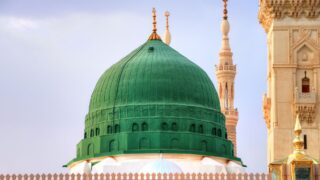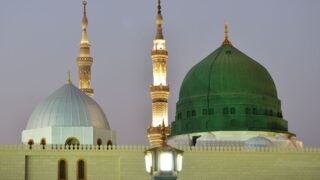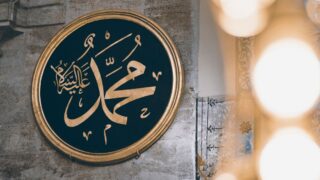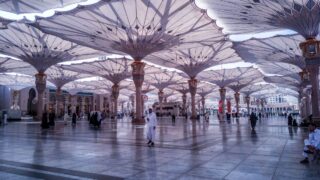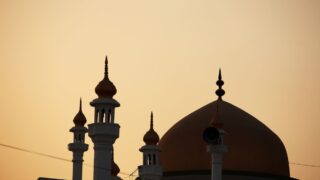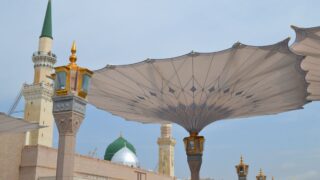The freedom in the Prophet’s era cannot be compared with those in the Byzantine or Persian state based on the authoritarian despotism of the Caesars and Khosrows. In the time of the Prophet, may God’s blessings and peace be upon him, Medina was a virtuous city in which consultation, dialogue, criticism and revision were common among all Muslims, even the most vulnerable, because everyone invokes the principle of Qur’an equality, which commands the equality of people in creation and origin first, then equal Muslims among themselves in the dhimma, “protection” as in the hadith. : “Muslims are equal in blood, and they are a hand on others, and they hasten to support the asylum granted by the least of them ” [Abu Dawud, Book of Punjab, 2751].
Equality is universal for all people, men and women, scholars or ignorant, in legal cases, in litigation, in taking rights, or in assuming jobs on their conditions.
It suffices in the report of this principle the saying of God Almighty: Whoever does righteous deeds, whether male or female, and he is a believer, we shall give him a good life, and let us reward them with the best of what they used to do [An-Nahl, 97]. As well as his saying, may blessings and peace be upon him, in the farewell pilgrimage: “O people, your Lord is one, and your Father is one, all of you are from Adam and Adam is from dust.
The application of freedom during the Prophet’s era was clear in the negation of classism or disgusting racism among the people of the same household, which included the Ansari, Muhajiri and all other Arab tribes, and even Muslims from other people.
Freedom was manifested in many fields, such as consultation, review and constructive criticism, and there was no confiscation of opinions. Even the hypocrites who formed a hidden and overt opposition were treated as equals with Muslims, except for those who slipped their feet to crimes that were not acceptable to Sharia or public order. Freedom has manifested in two important fields:
First: Freedom of assembly and consultation
This freedom was guaranteed, and it was expressed in the establishment of Friday prayer and congregation in the rituals, where Islam enjoined the congregation and the building of mosques, and it is clear that those successive meetings five times a day result in immediate discussions in the conditions of the Muslim community.
There were different clubs and markets in Madinah, and biography books talk about gatherings of hypocrites who were opposing the Prophet, may God’s blessing and peace be upon him, and they were only prohibited when they reached the establishment of parallel institutions such as the Dirar Mosque( a mosque that was built in order to cause disunity among muslims) in the ninth year of the Hijra. The mosque was demolished because it was a focus of sedition and disrupting the public order of the state. Muslim.
The city of Medina was distinguished by the consolidation of the system of consultation and deliberation in public issues , in implementation of the Qur’an principle that abhors monopoly of opinion and tyranny with advice. In commenting on the Battle of Uhud in which the Muslims were defeated after the Prophet, may God’s blessing and peace be upon him, came down to the opinion of the majority, who decided to leave Medina to fight the polytheists, despite the cruel defeat, the Qur’an commanded that consultation continues even in the darkest of circumstances, in the Almighty’s saying: “Forgive them, seek forgiveness for them, and consult them in the matter. If you are determined, then trust in God. God loves those who trust.” [Al-Imran, 159]
And there is no secret that the Companions were in compliance with the Qur’an directive stating that shura is obligatory: “They were commanded of a consultation between them” [Ash-Shura, 38], and their role model in that was the Prophet, may God’s blessing and peace be upon him, who used to say to Abu Bakr and Omar: “If you were to meet on a matter I would not disagree with you.” [Ahmad, 18023].
And he himself, peace be upon him, came down to the opinion of Al-Habab bin Al-Mundhir in changing the war position in the Battle of Badr, and in the Battle of Al-Khandaq he wanted to reconcile Ghataffan on the third of the madinah’s fruits, so he consulted Sa’ad bin Ubaadah and Sa’ad bin Mu’aadh who were leaders of both Al-Aus and Al-Khazraj, they rejected it and the prophet came down to their opinions.
This is because the Prophet, may God’s blessings and peace be upon him, did not wear the cloak of unjust kings, but he was the moon that glows with humility and listening to all opinions, such that the hypocrites blamed him for this modesty as the Qur’an narrated about them in the words of God Almighty: there are some among them who talk ill of the prophet by saying: “He listens to everyone.” Tell them: “He listens for your good, and trusts in God and trusts the faithful, and he is a blessing for those who believe. ﴾[At-Tawbah, 61].
Second: Freedom of criticism and review
It is an issue that Islam has guaranteed in the texts requiring the enjoining good and forbidding the evil in the example of the Almighty’s saying: “Let there be a nation among you who calls for good, enjoins good, and forbids evil.” [Al-Imran, 104]. As well as the texts that command and proclaim advice, which in essence is the review of everything that a person deems wrong, and that in his saying, peace and blessings of God be upon him: “Religion is sincerity, we said to whom? He said: To God, His Book, His Messenger, and the leaders of Muslims. [Muslim, Book of Faith, 55]. Also the hadith of Jarir: “I pledged allegiance to the Prophet, may God’s blessing and peace be upon him, to establish prayer and give zakat and sincerity to every Muslim” [Al-Bukhari, Book of Times, 524]
Therefore, review and criticism of private and public behavior, and even of administrative measures, became common. Examples of this are numerous, whether from the sincere believers or the hypocrites who lie in covert. In the treaty of AL-Hudaybiyya that the Prophet, may God’s blessing and peace be upon him, had with the Quraysh in the sixth year of the Hijra, Umar ibn al-Khattab strongly opposed him and said his saying: “By God, I have not doubted since I embraced Islam except on that day. So I came to the prophet and so I said, O Messenger of God: Are you not a true prophet of God? Are we not on the truth, and our enemy are upon falsehood, so why do we get humiliated in our religion, and return and when God has not judged us between us and our enemies”[Zad al-Ma`ad]
When the Prophet, may God’s blessings and peace be upon him, made Usama bin Zaid the commander of the army going to invade the Levant, and he was young and under seventeen years of age, people spoke about this leadership and blamed it. Their statements and criticism reached the Prophet, may God’s blessings and peace be upon him, and said: “If you criticize his leadership, you have criticized his father’s leadership before, and God willing, that he was worthy of the leadership. ”[Al-Bukhari, Kitab Al-Maghazi, 4469]
Similarly, during the Ansar’s criticism of the policy of distributing the loots of Hunayn after the Battle of Autas, when the criticism were increased in them, the Prophet, may God’s blessings and peace be upon him, gathered them together and perfected their thoughts.
Given that the issue of criticism and review is a common and not objectionable issue, some people may go beyond the limit in it, so the Qur’an directives came to adjust the usage of these freedoms during the Prophet’s era, as the Almighty said: Know that among you is the Messenger of God, if he obeys you in many matters, you would surely come to grief. [Al-Hujurat, 7]
As for procedural criticism from the hypocrites who were opposing the Prophet, it was not hidden, and it was a lot, to the extent that the Qur’an was threatening them in the face of harming the sanctity of the Muslim community and the security of the emerging state in the Almighty’s saying: “If the hypocrites and those in whose hearts sickness and the rumor-mongers of Medina did not desist, we shall rouse you against them, so they would not be able to live with you in the city except for a short period [Al-Ahzab, 60].
An example of that criticism was what was waved by Abdullah bin Ubayy bin Saloul, the leader of the hypocrites, when the Prophet, peace and blessings of God be upon him, listened to the teenagers and youths when they were on their way to Uhud, which made him return a third of the army to Medina, which indicates the expansion of the opposition circle in Medina.
The opposition did not disappear, and its conspiracies that took place with tongue and action. Many verses and surahs were revealed because of that, such as Surat Al-Ahzab, Al-Hashr and Al-Munafiqun, and finally Surat Al-Tawbah in the ninth year, commenting on the actions of the hypocrites, in the words of the Almighty in many places explaining the situation of everyone saying: “And among them” and confirming the presence of hypocrisy in many circles, in the Almighty’s saying: Some of the Arabs of the desert around you are hypocrites, and some of the people of Madina are stubborn in hypocrisy. You are not aware of them; We know them. [At-Tawbah, 101]
The new Muslims among the expatriate Arabs were not spared from raising their faith/fitility by criticizing the administrative and financial procedures of the state, in numerous incidents that the Prophet, may God bless him and grant him peace, met with silence, abstinence and gratification.
In the incident of dividing the loot of Hawazen, a desert Arab man named Dhu al-Khuwaisirah al-Tamimi came and said to the Prophet, may God’s blessing and peace be upon him: “O Muhammad, be just, for you are not fair.” He, may God’s blessing and peace be upon him, said: “Woe to you, and who is righteous if I am not? Umar ibn al-Khattab said: “Let me strike his neck, but the Prophet, may God’s blessing and peace be upon him, did not permit him” [Al-Bukhari, Book of the Warriors Estetaba, 6933]
Similar to this are those who criticize financial measures, and they are the reasons for revelation of the words of God Almighty: There are some among them who blame you (of partiality) in distributing the offerings made in the name of God. In case they receive some of these they are pleased, if not, they are incensed.
Another category used to criticize the judicial rulings, and in them the saying of God Almighty was revealed: Indeed, by your Lord, they will not believe till they make you judge in their disputes and find no constraint in their minds about your decisions and accept them with full acquiescence. [An-Nisa, 65]
All these numerous facts indicate beyond any doubt the existence of freedom in the Prophet’s era and the expansion of the field of criticism and review. This freedom left its mark during the era of the Rightly Guided Caliphs, starting with the Seqifa conference and ending with sedition. These are experiences worth reviewing for further use in our contemporary lives.
*Mohammed Abdul Halim Bishi



